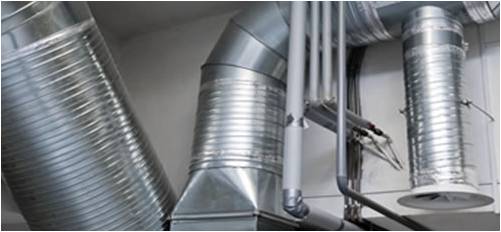It’s funny, but even in this day and age, there are still those that look at the idea of commercial kitchen duct cleaning as if it’s something of an optional service. As those working in any area of catering or food service will know, there really isn’t a single everyday task that cannot be outsourced to third parties if so wished. As such, it’s natural to become a little bit jaded by the expense of bringing in so many outsiders to take care of jobs that can, theoretically at least, be handled in-house.
This is precisely the way a great many business owners approach the subject of kitchen duct cleaning, having reached the assumption that with just a little proactive care and the odd wipe here and there, it’ll pretty much take of itself. Sadly, however, this isn’t the case at all as while the overwhelming majority of commercial kitchen cleaning tasks can be handled in-house by employees, duct cleaning calls for the skills, experience and indeed the tools of the professionals.
Of course, it’s natural to avoid these kinds of additional expenses for as long as possible, given the way in which running a professional kitchen in accordance with UK regulations has never been more expensive. But at the same time, it’s an expense you cannot afford to overlook as to do so is to risk facing all manner of undesirable consequences.

Here’s a quick rundown of reasons as to why professional duct cleaning should be considered mandatory by anyone working in the industry:
Public Liability
One of the most overlooked, ignored or simply unknown arguments for professional duct cleaning to begin with – improperly maintained ducts could invalidate you public liability insurance. Chances are that most business owners will not have the time or the inclination to read every last word of the terms and conditions attached to their insurance policies, but in a great many cases the policy as a whole may be rendered null and void if you don’t have your ducts cleaned on a regular basis. This doesn’t just mean having them quickly wiped down or given a once-over either, but rather fully inspected and serviced by a registered service that can provide evidence that you’ve met the industry certified standards.
Health and Safety
On a more immediate level, it should be pretty obvious that when the systems that are supposed to be filtering internal air and transferring it to the outside aren’t doing their jobs properly, chances are health and safety standards will be affected. The more inefficient or incapable of running a duct system is, the more chance there is of it pumping recycled and wholly unclean air back into the building, which will then be taken in and re-taken in over and over again by staff members and employees alike. Worse still, you have no idea as to just how many mould spores and general bacteria are finding their way into the air supply, which may not become apparent until it’s too late to prevent a breakout of ill-health.
Fire Safety
Another of the often overlooked consequences of poor duct cleanliness and management is that of build-ups of dirt, debris and grease posing a potential fire hazard. Almost anything that’s in your ducts which shouldn’t be there could represent fuel for a fire, with grease in particular presenting a real and genuine danger. This is again something that can have an enormous impact on both the costs and validity of your insurance policies in general, as a restaurant that runs a higher risk of damage or destruction by fire isn’t a restaurant most want to do business with.
Long-Term Savings
Last but not least, while it may of course be necessary to front a series of costs when it comes to having your ducts cleaned every now and again, the savings you stand to make long term cannot be overlooked. Not only will you stand a much better chance of avoiding any expensive legal battles resulting from unclean ducts having harmed your staff or customers, but to keep an extraction system in great condition day in and day out is to minimise the likelihood of having to have the whole thing repaired or replaced. More often than not, you’ll extend the life of the system to such an extent that it will augment the costs of periodic cleaning many times over, so it’s crucial to look toward the long term rather than just worrying about the initial expense.